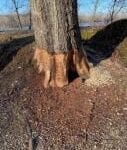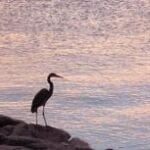Written by Thu Tran, MD,FACOG
March 10, 2020

I don’t remember how many weeks that, whenever I wake up and turn on the TV for news of the day while preparing for work, I have been bombarded with statistics on how many people have died around the world from Coronavirus, and how many more people were diagnosed with this specific strain, Covid-19. My online subscriptions from different media and newspapers have the same breaking news about where this virus has been spotted. I have been bewildered by the political pundits and scientists who seem to live on two different planets when talking about this crisis. Will Covid-19 disappear in April when the weather gets warmer? Are there enough test kits for everyone in the US whenever needed? Who do we believe? Whom should my patients count on in times of public health crisis, the government or the scientific communities? As long as scientists from trustworthy organizations such as NIH or CDC can express their opinions freely, I have advised my patients, we should listen to the scientists. After all, we do not order dinners from our Uber drivers, unless they once were restaurant chefs. Politicians might want us to believe they have a natural knack for science, but unless they have won a Nobel Prize in medicine before venturing into politics, I prefer to put my longevity in the hands of good physicians and other scientists during a public health crisis.
I read about tourists and others who have been quarantined, the loneliness and fear they have while in the confinement of the “government hotels” or their own homes. Suddenly, their lives are out of control, as a professor from California wrote in an essay about her quarantine after coming back from Wuhan, China. She just wanted to go back to her ordinary life. Many of us do not appreciate our ordinary life until it vanishes.
Such time of crisis should give us reflection on this ordinariness of life. While limiting or cutting off time at the malls, restaurants or movie theaters, canceling planned vacations to “hot spots” such as Italy for China, we have more time to reflect on mortality and the goals of living. In the rat race of life, we rarely have time to reflect on these critical topics.
In a very moving New York Times article over the weekend, titled “ I Love the World, but I Cannot Stay,” the clinical psychologist Mary Pipher reflected on her life and mortality. Pipher is so wise she summarizes the essentials of living meaningfully in one brief article. I share her philosophy and wish “to die young as late as possible.” Pipher does not want to live beyond her energy level. She poignantly states “I don’t want to suffer dementia or lie helpless in a hospital. I want to die while I still believe that others love me and that I am still useful.” Not all of us believe in Pipher’s philosophy, but it’s important to reflect on it. What do you want out of life? Is it enough that you breath and stare at the ceiling of a hospital for years until the end, or would you rather that life ends when you can no longer wander the meadows full of flowers in spring time?
Mary Pipher made me reflect on my health and mortality. She shared a reflection indicating her awareness of her good fortune. If she learned she had only a month more to live, she believed she would not spend her time any differently. That sounds like a “perfect” life; she is living hers to the fullest and without regret.
On this day off from work, I went to the gym for an intense interval weight training class. The instructor asked us afterwards if he should change the format of the class, from rotating every minute from one station to the next, to each person having his own station, holding his own equipment and having his own mats. He had a rousing approval from everyone in the class, although they all seemed young and fit. This crowd probably will survive the Coronavirus if they get infected, but then they can spread the virus to more vulnerable members in society.
We athletes now will have our own station, a self quarantine, in such a fun class where each of the eight stations had at least 2-3 people cheering each other on whenever we started sweating and getting tired of the moves, or when we could no longer lift the weights that seemed to be so light on the first round of the workout. There will be no socialization between class members, as we will have to push ourselves at our own station, hopefully not having to wear masks and gloves. It might be a wise move, I said to myself, as Covid-19 has invaded Maryland.
I have refused, however, to follow the masses to Costco to raid the shelves for toilet paper and hand sanitizers, causing severe shortages of such products to those who need them more. How many bags of potato chips or cereal can a family eat in one month of self quarantine? How often do we use our toilet in a month such that local Costco stores have to limit the number of bulk purchase of toilet paper per family? Are we living in an apocalypse now, or are we creating an unnecessary one? As one of my Asian patients, a scientist, put it:
“There is no need for my family to get panicked! We have a big bag of rice and a big bottle of Soy Sauce. We will survive this apocalypse if it comes! We should save necessary foods for old people in the grocery stores, just in case they get sick.” Such altruistic thinking can be rare in time of crisis!
Instead of raiding the grocery and pharmacy shelves for our ordinary life’s abundant goods, I have spent more time outdoors. With climate change, there has been no snow this year in my area. The crocuses and daffodils have popped up in my yard and everywhere on my walking paths. Nature has been known to lower our stress hormone, cortisol. Walking, hiking, or biking along nature paths is a great way to lower our anxiety about a virus that might never pop up in our community. Preparing for an apocalypse does not mean we should stop living actively, especially if we fear for less time being on this earth.
Maybe this Coronavirus will stop people from flocking to the malls for unnecessary material goods and, instead will encourage them to venture out in nature. Maybe they will discover the beauty that has been around them for years, such as national parks or forests and mountains in their area. Like my friends and I who speed-walk or run each Sunday on the C&O Canal in our area, they will find how Coronavirus cannot stop them from living a healthy life. Like Mary Pipher, they might even discover in their own yard, the ‘Naked Ladies’ Lilies, a species of lilies that bloom in mid-August, called Amaryliss Belladonna. Do you know what wild flowers bloom in your yard in spring time?
I hope this crisis of Coronavirus will leave soon. I would be a very unhappy participant in a “Face Time” interval weight training class, given how panicked the public has been with this crisis. Spring is almost here, however, so I might chose to create a station in my backyard to do the same weight training moves, while watching the flowers blooming around me, and seeing the blue sky, instead of being in a room without windows. I would be happy because it would be my choice to isolate myself in nature while exercising rather than the virus itself refraining me from doing what I love.1
Tags:








